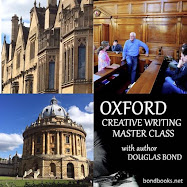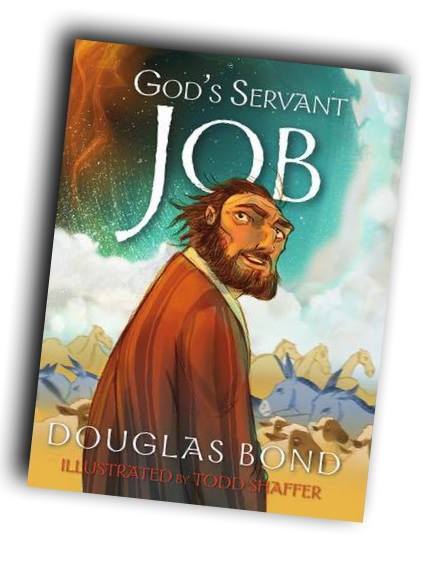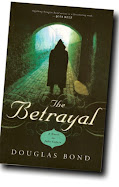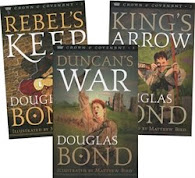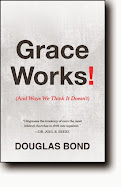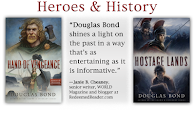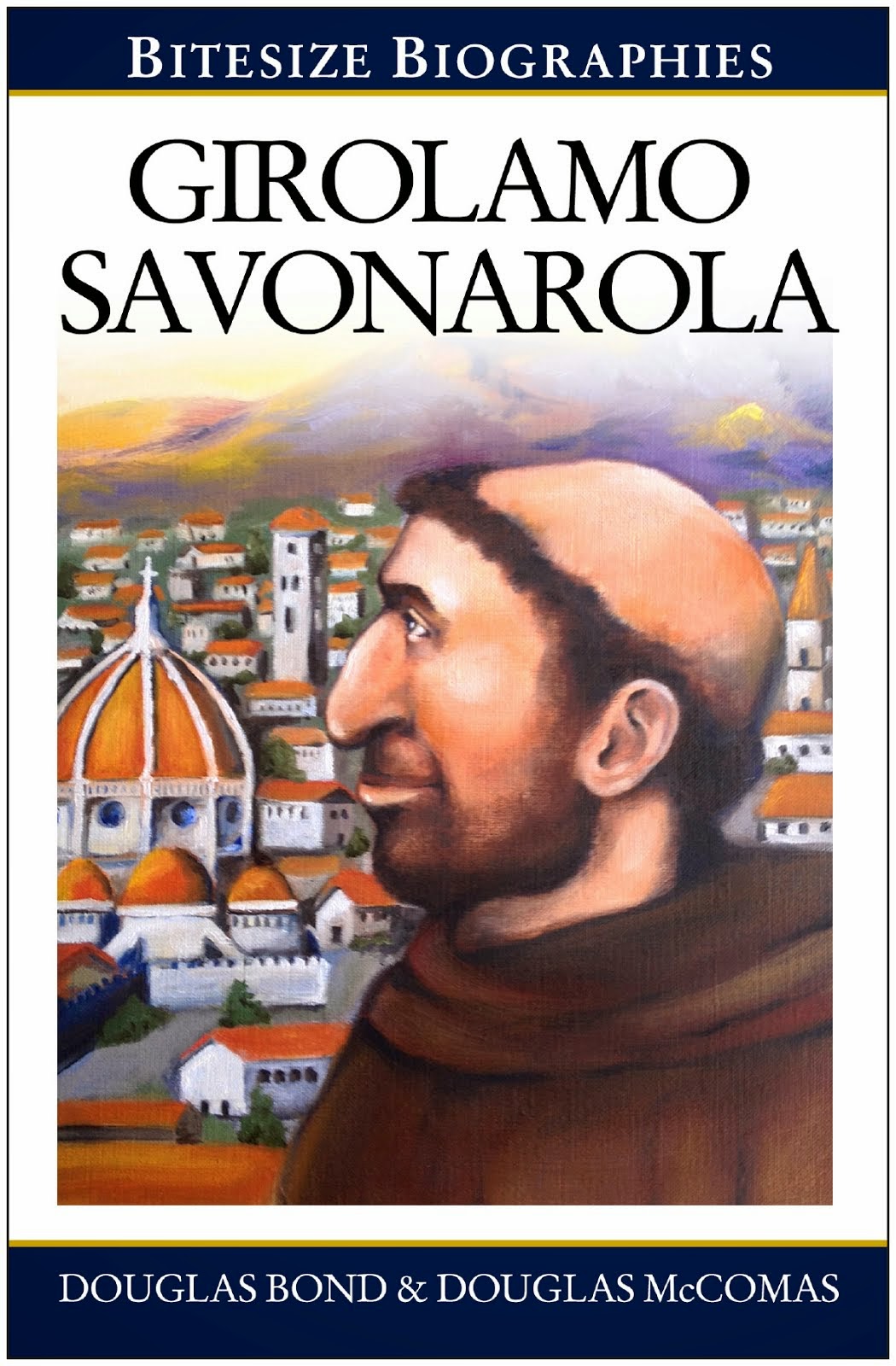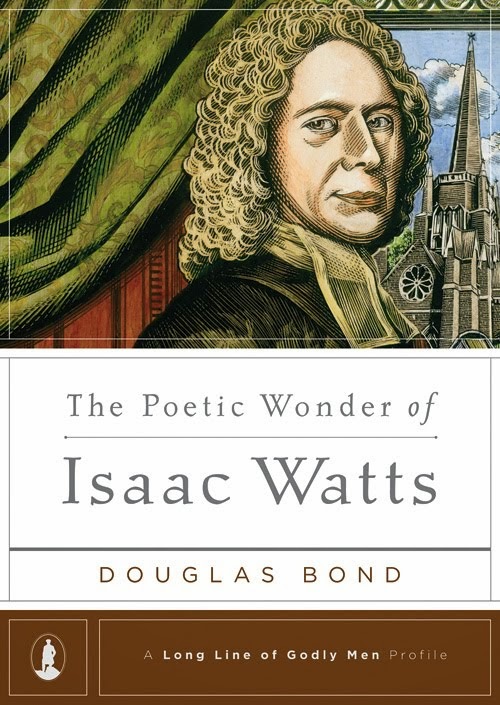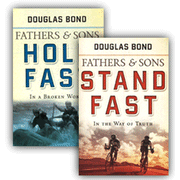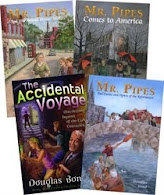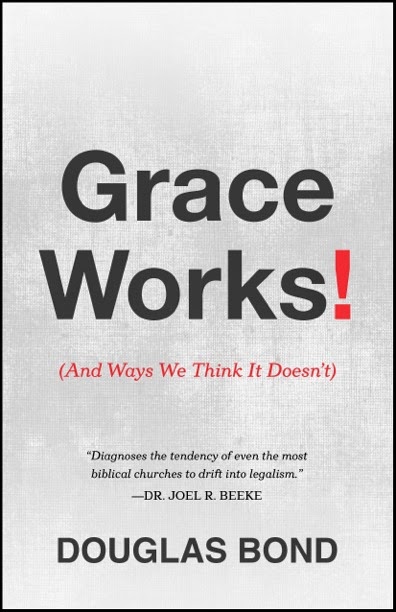
THE BETRAYAL, a novel on John Calvin (click to order) is now available. Here's what some reviewers have writtten about the book.
"Douglas Bond introduces John Calvin to us in a gripping way, colorfully taking us back to Geneva and its times, unveiling Calvin as the principled man of action, commitment, and love that he was. The Betrayal makes for an exciting read, showing the great Reformer's heart for theology, piety, and doxology, while almost effortlessly and implicitly undoing caricatures about Calvin along the way. If you want Calvin and his times brought to life in a page-turner, this is the book for you!"
Joel R. Beeke
President
Puritan Reformed Theological Seminary
Grand Rapids
"With masterful insight, Douglas Bond offers us an illuminating portrait of the life, ministry, and theology of John Calvin. For readers of all ages, this well-researched, historical fiction takes us back to the sixteenth-century Reformation as if we were eye-witnesses of all that God accomplished in and through the life of His humble servant John Calvin. If you enjoy reading the fictional works of C. S. Lewis, you will love this book."
Burk Parsons
Editor of Tabletalk magazine
Minister of congregational life at Saint Andrew’s Chapel in Sanford, Florida
"Another great piece of historical fiction from Douglas Bond! As in his previous books, Bond provides a compelling narrative with clear historical accuracy and rich theological reflection. I don’t know if I have ever seen these aspects so compelling combined as in Bond’s books. This is why Douglas Bond is one of my family’s favorite authors. In this book Bond helps the reader grasp the humanness of Calvin, the manner of life in 16th century Europe and the real struggle for the gospel. This is a great entry way into the life of Calvin and the Reformation in general. It is entertaining and spiritually edifying. I commend it heartily."
Ray Van Neste, Ph.D.
Director, R. C. Ryan Center for Biblical Studies
Union University, Jackson, TN
“The events and ideas of John Calvin are captured in a lively, historical fiction, giving the famous theology a heart and voice. Douglas Bond’s eye for cultural detail frames the debates of the day in a specific time and geography, resulting in a fresh vision for our own times. Well done.”
Dr. Mike Sugimoto
Joel R. Beeke
President
Puritan Reformed Theological Seminary
Grand Rapids
"With masterful insight, Douglas Bond offers us an illuminating portrait of the life, ministry, and theology of John Calvin. For readers of all ages, this well-researched, historical fiction takes us back to the sixteenth-century Reformation as if we were eye-witnesses of all that God accomplished in and through the life of His humble servant John Calvin. If you enjoy reading the fictional works of C. S. Lewis, you will love this book."
Burk Parsons
Editor of Tabletalk magazine
Minister of congregational life at Saint Andrew’s Chapel in Sanford, Florida
"Another great piece of historical fiction from Douglas Bond! As in his previous books, Bond provides a compelling narrative with clear historical accuracy and rich theological reflection. I don’t know if I have ever seen these aspects so compelling combined as in Bond’s books. This is why Douglas Bond is one of my family’s favorite authors. In this book Bond helps the reader grasp the humanness of Calvin, the manner of life in 16th century Europe and the real struggle for the gospel. This is a great entry way into the life of Calvin and the Reformation in general. It is entertaining and spiritually edifying. I commend it heartily."
Ray Van Neste, Ph.D.
Director, R. C. Ryan Center for Biblical Studies
Union University, Jackson, TN
“The events and ideas of John Calvin are captured in a lively, historical fiction, giving the famous theology a heart and voice. Douglas Bond’s eye for cultural detail frames the debates of the day in a specific time and geography, resulting in a fresh vision for our own times. Well done.”
Dr. Mike Sugimoto












